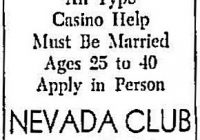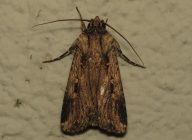|
Listen to this blog post here
Getting your Trinity Audio player ready...
|

1957
These fortunes and statements were what appeared in the display of a particular slot machine when one read the whole reel from left to right. Short three- to five-word phrases replaced the typical fruit or other symbols.
What To Do With It
One such informative slot machine, manufactured in the 1920s, was spotted in the home of a recently deceased, 27-year Portola, California resident, Fred Frisch. It not only created intrigue but, also, caused a debate about its fate between two public officials who held dual roles in the locale, Plumas County.
When at Frisch’s home, investigating his death, W.C. Abernethy, as the coroner, noticed the slot machine. He determined the cause of death of this 67 year old to be a heart attack. Frisch had a colorful life, boxing in Fresno between 1908 and 1916, then joining the fire department and later going into the real estate business and owning a tavern and a café in Portola.
John I. Keane, as a public administrator, claimed that the machine and its contents should stay with the rest of Frisch’s estate. The apparatus was discovered to contain three nickels, the newest of which was dated 1943, and 30 tokens. Words on most of the latter indicated they could be exchanged for candy or mints or were for amusement only. Some bore the names of enterprises, including: Hub Saloon at the Cambridge Hotel in Cambridge Idaho; Silver Palace and Mad House in Bend, Oregon; and Big Three Pool Hall in Modoc County, California.
Abernethy, as the sheriff, confiscated the machine as an illegal gambling device and secured it in the evidence storage locker. Law in The Golden State then forbade private ownership of any such machine.
Keane, as the district attorney, delivered the opinion that Abernethy was right in seizing the slot.
As an afterthought, Keane asked that he get back the nickel he’d inserted in the slot as a test. Sheriff Abernethy refused, stating the coin constituted part of the evidence.
New Owner and Home
Ultimately, both men, or all four officials, decided to donate the machine to the Peppard Museum at the local county fairgrounds for display with the other relics there.*
* Today, the slot machine is gone from the Peppard, which now is called the Peppard Cabin and is overseen by the Plumas County Museum.





